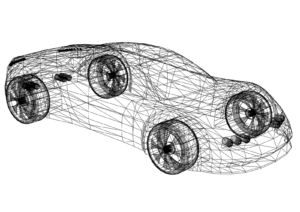Genetics play a crucial role in determining the health of our eyes and our vision. Our genes can influence our risk of developing certain eye conditions, such as age-related macular degeneration (AMD) and glaucoma, and can affect the way our eyes function and respond to treatment. In this post, we’ll discuss the role of genetics in eye health and vision, and provide some tips for managing eye conditions that have a genetic component.
The Role of Genetics

Genetics play a crucial role in determining the health of our eyes and our vision. Our genes are the instructions that determine our physical characteristics, including the color of our eyes and the shape of our irises. They also play a role in the development and function of our eyes and vision.
Genetics can influence our risk of developing certain eye conditions, such as AMD and glaucoma. These conditions are caused by a combination of genetic and environmental factors, and people who have a family history of these conditions are more likely to develop them.

Genetics can also affect the way our eyes function and respond to treatment. For example, some people are more sensitive to the side effects of certain medications, such as glaucoma drops, than others. This can be due to genetic factors.
Think of the eye like a car. Our genes are like the blueprint for the car, which determines its physical characteristics and how it functions. Just as different car models have different features and capabilities, our eyes have different characteristics and functions due to our genetics.
What Can You Do If You Have a Family History of Eye Conditions?
If you have a family history of eye conditions, there are some steps you can take to reduce your risk of developing these conditions. Here are some tips for managing eye conditions that have a genetic component:

- Have regular eye exams: One of the best ways to manage eye conditions that have a genetic component is to have regular eye exams. This can help to detect eye conditions early, before they cause significant vision loss. If you have a family history of eye conditions, your doctor may recommend more frequent eye exams.
- Follow a healthy lifestyle: A healthy lifestyle can help to reduce your risk of developing eye conditions. This includes eating a balanced diet, exercising regularly, and avoiding smoking and excessive alcohol consumption. A healthy lifestyle can also help to manage existing eye conditions, such as AMD and glaucoma, and reduce the risk of complications.
- Take vitamins and minerals: Some eye conditions, such as AMD, can be managed with vitamins and minerals. For example, lutein and zeaxanthin can help to protect the cells of the retina and reduce the risk of vision loss. If you have a family history of eye conditions, your doctor may recommend taking these supplements to reduce your risk of developing these conditions.
- Use protective eyewear: Certain activities, such as sports and working with hazardous materials, can increase the risk of eye injuries. If you have a family history of eye conditions, it’s important to use protective eyewear, such as safety glasses or goggles, to reduce the risk of injuries and complications.
Conclusion
Genetics play a crucial role in determining the health of our eyes and our vision. Our genes can influence our risk of developing certain eye conditions, such as AMD and glaucoma, and can affect the way our eyes function and respond to treatment. If you have a family history of eye conditions, there are some steps you can take to reduce your risk of developing these conditions. These include having regular eye exams, following a healthy lifestyle, taking vitamins and minerals, and using protective eyewear.